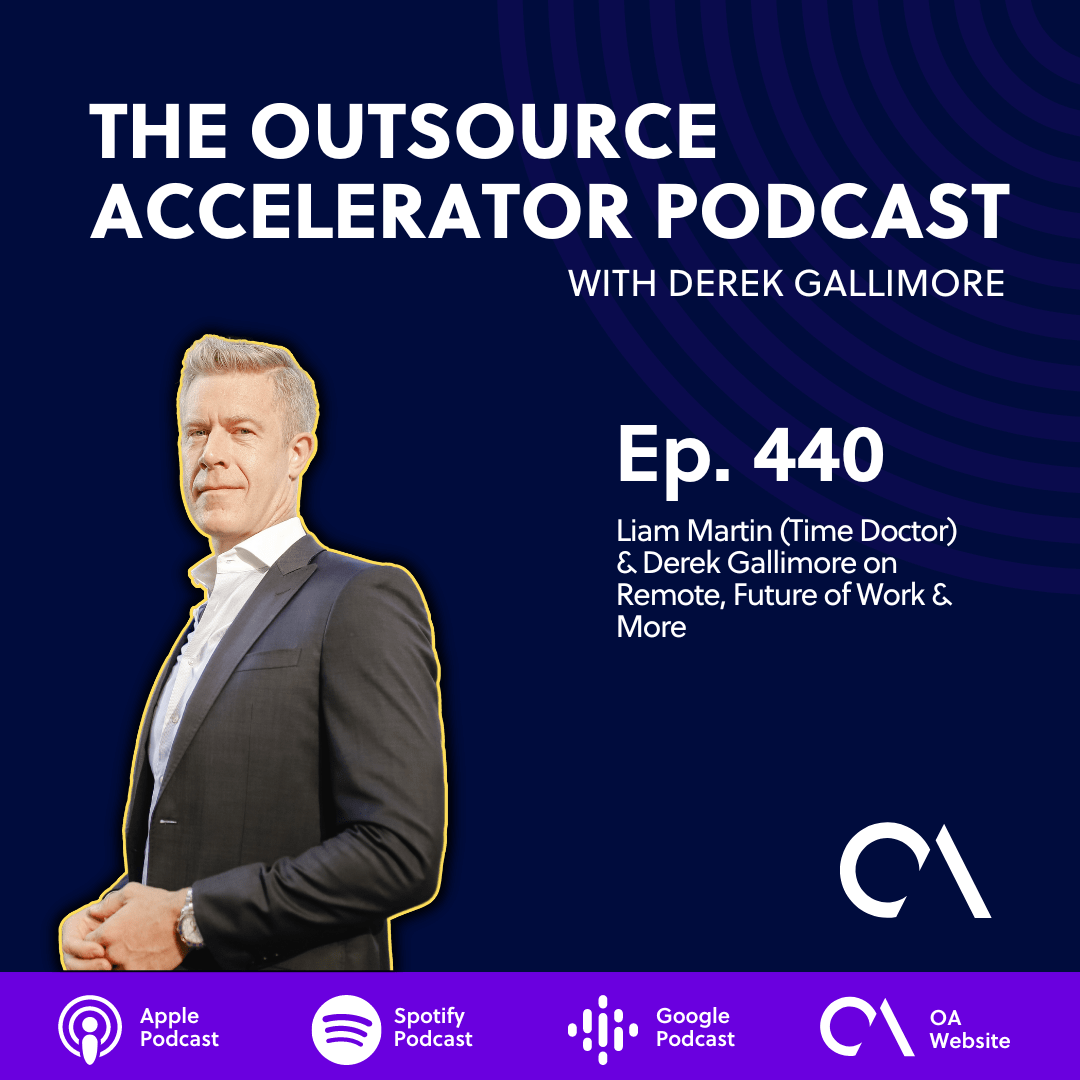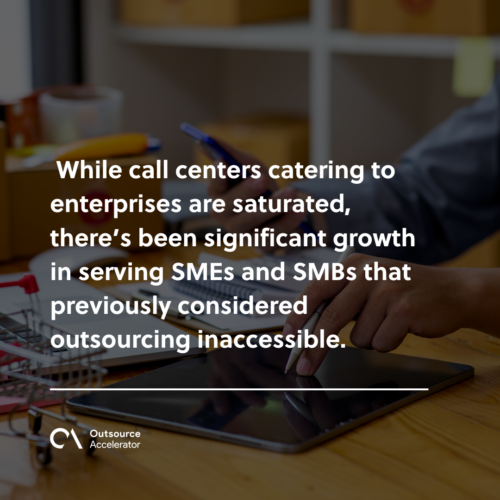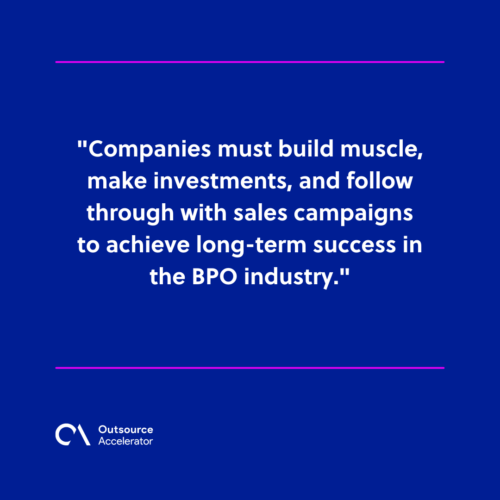Liam Martin (Time Doctor) & Derek Gallimore on Remote, Future of Work & More

This week, Outsource Accelerator’s Founder and CEO Derek Gallimore is interviewed by Time Doctor’s Liam Martin for his The Future Workforce Podcast.
Derek and Liam share insights on the future of work, global employment, and the impact of artificial intelligence in outsourcing.
About Outsource Accelerator
Outsource Accelerator (OA) is the world’s leading marketplace committed to aggregating the outsourcing industry. The OA platform allows businesses to explore and navigate the industry more easily and safely, integrating outsourcing and offshore staffing into their operations.
Derek drew inspiration from successful marketplaces like booking.com, which simplify and aggregate various consumer services.
He recognized the power of outsourcing while running a previous business and decided to apply the marketplace model to the outsourcing industry. Outsource Accelerator’s platform represents its general breadth and depth.
The BPO industry’s growth by the numbers
To date, the outsourcing industry generates approximately US$246 billion in annual revenues and is more sophisticated than just freelancers and virtual assistants.
The OA founder also shared that the BPO industry employs approximately 10 million people globally.
There are currently about 3,000 BPO companies of all sizes worldwide. Larger BPOs like Accenture and Teleperformance employ hundreds of thousands of people, while smaller firms make up the long tail.
Fastest-growing category
Defining the industry can be challenging as it encompasses various niches and includes agencies and IT outsourcing.
In terms of growth, Derek noted that while call centers catering to enterprises are saturated, there’s been significant growth in serving SMEs and SMBs that previously considered outsourcing inaccessible.

Some of the categories that have seen growth in the past years are the following.
- Specialized verticals, including development services, creative, accounting, and sales
- Generalist outsourcing models, involving administrative services
- Professional employer organizations (PEOs)
- Employer of record (EOR) services
Industry movers and shakers
The BPO industry is expected to remain busy and evolve in the coming years.
Derek emphasized the importance of branding and culture as differentiators in a mature and commoditized market, as exemplified by TaskUs’ success.
He also highlighted TaskUs as an example of a company that successfully transformed outsourcing from a physical business to an advanced concept of global employment.
The company achieved this by creating a compelling narrative around its services. While their business model is not unique, they executed well, attracted clients, and capitalized on the Silicon Valley model of raising capital, achieving high valuations, and pursuing IPOs.
In a wider sense, established giants like Accenture and Teleperformance rule the scene. They accompany mid-level players like KMC, Emapta, Cloudstaff, and SupportNinja.
Global employment and starting a BPO company in the future
Per Derek, the BPO industry has shifted from traditional brick-and-mortar businesses to a more modern, tech-driven approach.
He predicts that global employment will become the default norm in the next 20 to 30 years, leading to the disintermediation of the outsourcing industry.
Top locations to outsource to
Regarding location, Gallimore said that the Philippines is an ideal choice for generalist and development teams. Eastern Europe or India, meanwhile, may be better for larger development teams.
He also mentioned the growing interest in Africa as a potential outsourcing destination due to the opportunity it offers for global employment and economic growth.
What to consider when starting a BPO company
The OA Founder highlighted the importance of the following factors when starting a BPO company.
- A unique value proposition
- A strong executive team
- Repeatable means of growth to attract buyers and increase the company’s value.
He also emphasized the need for BPOs to invest in their future and take calculated risks to break through the 500 to 1,000-seat level and reach higher growth levels.
Gallimore compared the conservative approach of some BPOs to the mom-and-pop businesses in the US, stressing the importance of spending to grow and the challenges of selling outsourcing as a concept.
All in all, Derek compared starting a BPO company to bodybuilding. Here, companies must “build muscle, make investments, and follow through with sales campaigns” to achieve long-term success in the BPO industry.

How AI will adapt towards outsourcing
Derek and Liam shared their thoughts on the role of AI in replacing jobs and the potential effects of outsourcing.
Derek believes AI will affect all industries and employment sectors, including BPOs. Higher-value roles, such as knowledge process outsourcing (KPO) and staff augmentation, may be less vulnerable to AI threats
Meanwhile, creatives and design will experience more vulnerability to it.
Visit Outsource Accelerator’s website to get in touch.







 Independent
Independent




